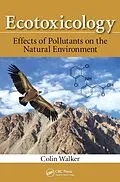Chemical Warfare in Nature
Pesticides and other industrial chemicals are at the root of many pollution problems. In view of the toxic effects of industrial chemicals found in the water, soil, and air, Ecotoxicology: Effects of Pollutants on the Natural Environment considers the impact of chemicals on the environment from a wider perspective: the evolution of plant toxins-and defense mechanisms against them in animals as a consequence of plant-animal warfare. Comparisons are made between this and the development of resistance by insects towards man-made insecticides.
Pesticides and Drugs
The text focuses particularly on problems posed by pesticides and, to a lesser extent, by drugs. This material specifically addresses the problems that pesticides pose and explores the development of resistance to them. It focuses on the history of pesticides, pesticide selectivity between target species and beneficial organisms, and types of pesticides. It discusses mandatory ecotoxicity testing as part of the process of risk assessment of environmental chemicals. The text considers the effects of pollutants at the population level, with respect to changes in numbers and genetic composition. It factors in the sublethal effects of pollutants on population levels, and cites an increase in the concentration of persistent pollutants in natural food chains as a cause of the decline of certain vertebrate predators.
Overall the text:
. Considers plant toxins as models for pesticides
. Emphasizes principles illustrated with practical examples
. Includes a glossary of terms
Divided into three sections, this text uses a variety of examples and case studies to examine the effects of pollutants-including naturally occurring ones-on natural processes. It guides the reader through the basic issues and principles; outlines the science of ecotoxicology, which is the study of the effects of chemicals upon ecosystems; and introduces various strategies for pollution control.
Autorentext
Colin Walker originally qualified as an agricultural chemist. He was responsible for chemical and biochemical studies of environmental pollutants at the Monk's Wood Experimental Station during the mid-1960s when certain effects of organochlorine insecticides were established. This work led to restrictions on the use of cyclodienes and DDT. He subsequently joined the University of Reading where he taught and conducted research on the molecular basis of toxicity with particular reference to ecotoxicology. Now retired, he is currently affiliated with the Department of Biosciences at the University of Exeter where he contributes to the teaching of a course in ecotoxicology.
Zusammenfassung
Chemical Warfare in NaturePesticides and other industrial chemicals are at the root of many pollution problems. In view of the toxic effects of industrial chemicals found in the water, soil, and air, Ecotoxicology: Effects of Pollutants on the Natural Environment considers the impact of chemicals on the environment from a wider perspective: the evolution of plant toxins-and defense mechanisms against them in animals as a consequence of plant-animal warfare. Comparisons are made between this and the development of resistance by insects towards man-made insecticides.Pesticides and DrugsThe text focuses particularly on problems posed by pesticides and, to a lesser extent, by drugs. This material specifically addresses the problems that pesticides pose and explores the development of resistance to them. It focuses on the history of pesticides, pesticide selectivity between target species and beneficial organisms, and types of pesticides. It discusses mandatory ecotoxicity testing as part of the process of risk assessment of environmental chemicals. The text considers the effects of pollutants at the population level, with respect to changes in numbers and genetic composition. It factors in the sublethal effects of pollutants on population levels, and cites an increase in the concentration of persistent pollutants in natural food chains as a cause of the decline of certain vertebrate predators.Overall the text: Considers plant toxins as models for pesticides Emphasizes principles illustrated with practical examples Includes a glossary of termsDivided into three sections, this text uses a variety of examples and case studies to examine the effects of pollutants-including naturally occurring ones-on natural processes. It guides the reader through the basic issues and principles; outlines the science of ecotoxicology, which is the study of the effects of chemicals upon ecosystems; and introduces various strategies for pollution control.
Inhalt
Section I Basic IssuesToxicology and EcotoxicologySome DefinitionsThe Discipline of EcotoxicologySelective ToxicitySummaryFurther ReadingEcotoxicityIntroductionWhat Determines Ecotoxicity?Pesticides and Other BiocidesIndustrial Chemicals Other Than PesticidesProtocols for Ecotoxicity TestingDetermination of Median Lethal Dose and Median LethalConcentrationEcotoxicity Testing That Uses Sublethal EndpointsBioassays for Measuring ToxicityModel EcosystemsEthical IssuesSummaryFurther ReadingA History of Chemical WarfareAn Evolutionary PerspectivePlant Toxins as PesticidesThe Coevolutionary "Arms Race"Plant Toxins as Models for PesticidesChemical Weapons and PredationChemical Weapons of Attack and DefenseMicrobial ToxinsEcotoxicology against the Background of Chemical Warfare in NatureSummaryFurther ReadingToxic Effects at Different Organizational LevelsSequential Effects of PollutantsEffects upon the Individual OrganismEffects at the Population LevelEffects upon Population GeneticsCommunities and EcosystemsEffects upon Structure and Function of Communities and EcosystemsMonitoring Changes in the Composition of CommunitiesField TrialsSummaryFurther ReadingThe Development of ResistanceIntroductionPopulation Genetics and Evolutionary TheoryPollutants as Stress FactorsMechanisms of ResistanceCross-ResistanceOvercoming Problems of Pesticide ResistanceThe Evolution of Metal Tolerance in PlantsResistance as an Indicator of PollutionSummaryFurther readingPesticides and Their DesignIntroductionEarly History of PesticidesThe Importance of SelectivityTypes of PesticidesWays of Using PesticidesObjectives in the Design of New PesticidesMass ScreeningModeling of New Pesticides Based upon the Struc
